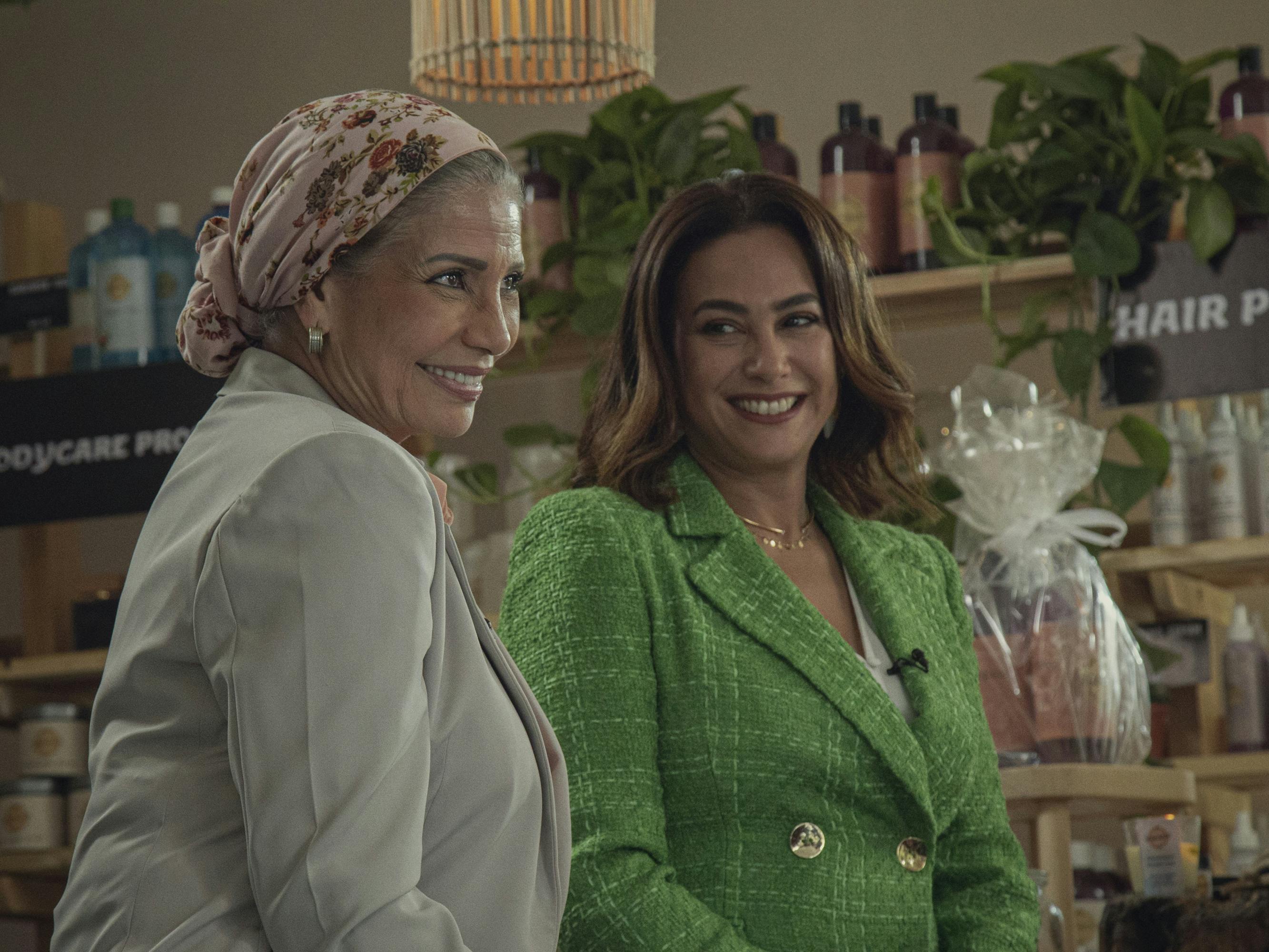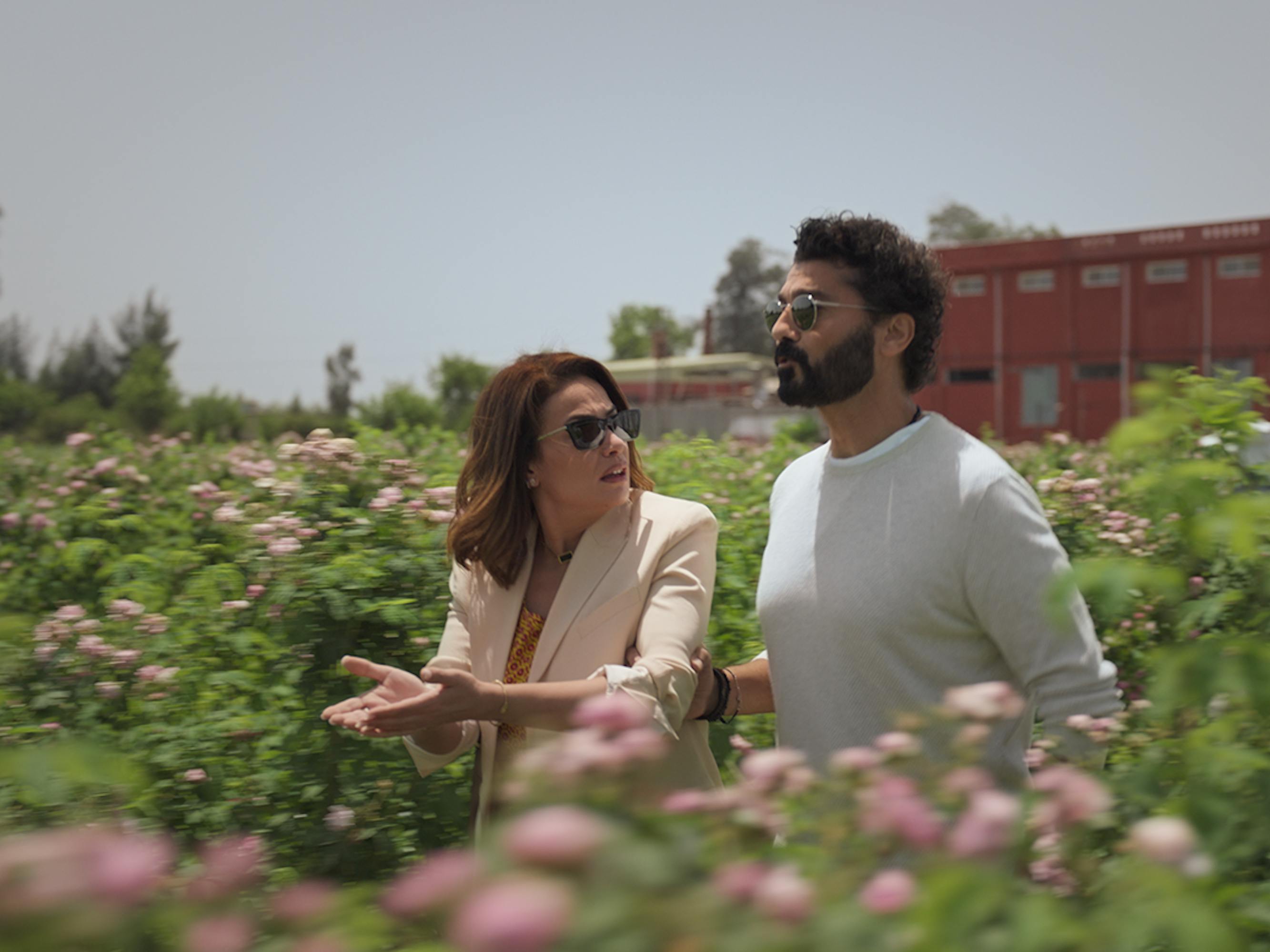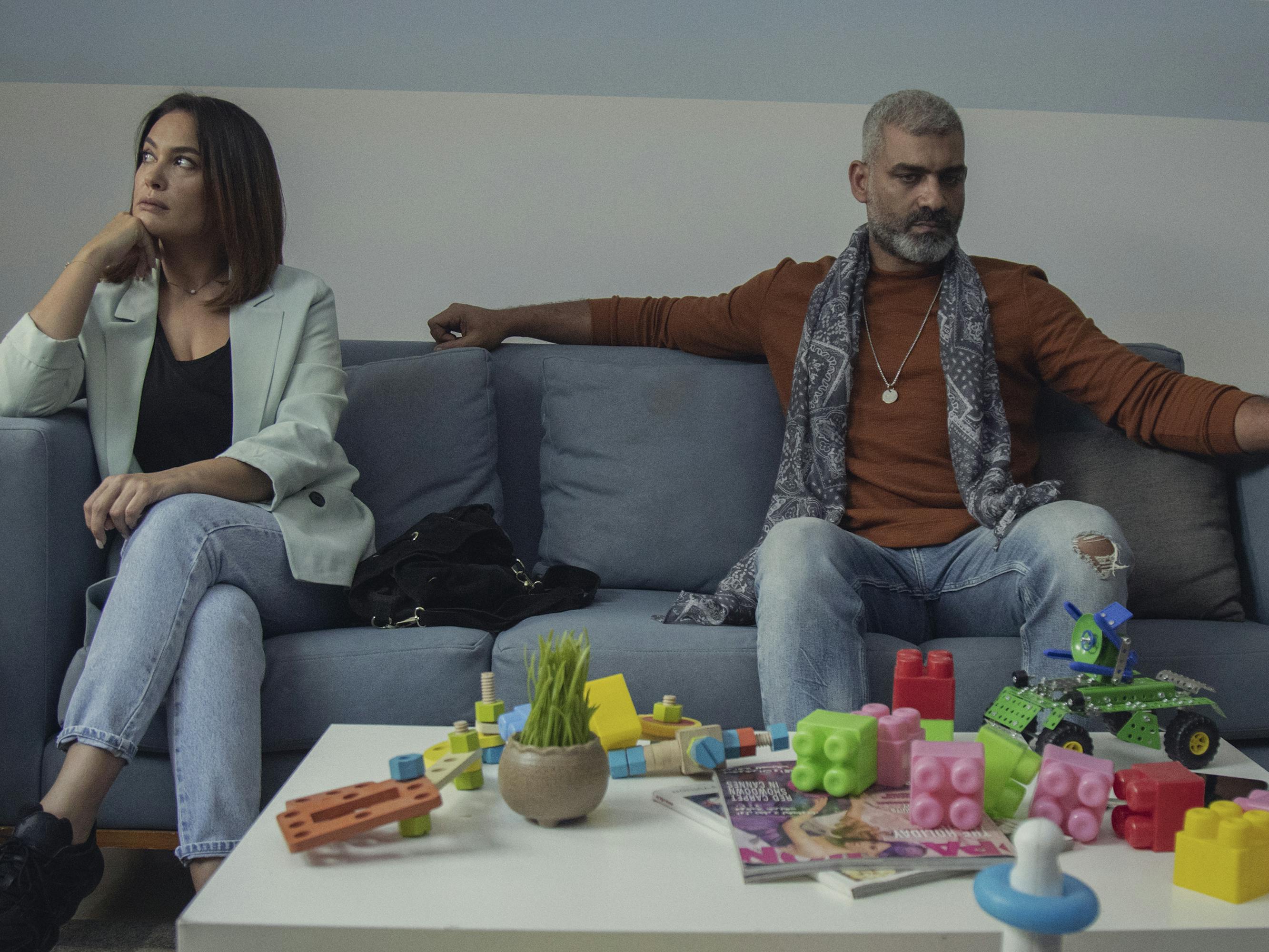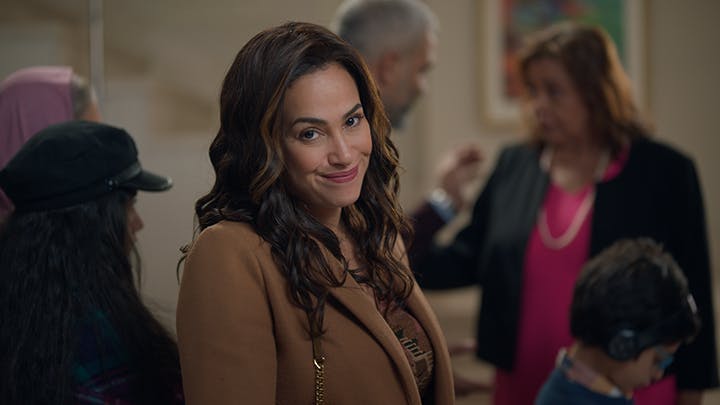The star and executive producer of the latest Netflix Arabic Original series, Hend Sabry is setting a new tone for women in the Arab world and beyond.
When Ola Abdel Sabour finally got married — on millions of television screens across the Arabic-speaking world — a decade ago, many people thought that marked the end of the beloved character’s journey. For the actress that embodied wedding-obsessed, relatable Ola, Hend Sabry, it was just the beginning of not only Ola’s journey, but her own.
Today, the Tunisian Egyptian television and film actor is a household name across the Middle East and North Africa. After kicking off her career in 1994’s The Silence of the Palace, a Tunisian film that was described by the New York Times as a “universal coming-of-age story with a feminist twist,” Hend has starred in film productions ranging from Marwan Hamed’s Ibrahim Al-Abyad and The Yacoubian Building to Sharif Arafah’s The Island, Ridha Behi’s The Flower of Aleppo, as well as television productions such as Vertigo and Counterattack.
But it was her role as Ola in the 2010 comedy series Ayza Atgawez (I Want to Get Married) that would eventually lead the veteran actor to become an executive producer. In Finding Ola, a spiritual successor to Ayza Atgawez, Hend both reprises her role as Ola and serves as executive producer for the first time in her career.

Sawsan Badr and Hend Sabry
Despite being a highly acclaimed actor and entrepreneur — including having established her own production company, Salam Productions in 2015 — Hend was surprised that Neflix didn’t hesitate when she asked to executive produce Finding Ola. “It is quite unusual for such a large platform to work with someone with no credit as an executive producer . . . It’s a dream for any actor or director to be involved with a Netflix Series and to have this kind of great faith placed on me as an artist by such a platform,” Hend says, adding that she had, of course, accumulated a wealth of experience across multiple departments throughout her three-decade career. “I really do thank Netflix for that. This is what empowerment looks like.”
That empowerment is important to Hend, who says that recent years have witnessed the entertainment industry evolving into one that is increasingly inclusive, particularly in the Middle East and North Africa. “We now have so many great writers who want to tell stories about women. We have many more women technicians and other women film crew members,” Hend says. “It is always very positive to see women behind the camera. I think the industry is opening up more and more to women.”
However, Hend is careful to note that the industry is still on its journey to equality, adding that “the most challenging part was the fact that it’s new [having an actress as the executive producer] in the Middle East.”
“At the beginning, there was a lot of skepticism when it came to my role. Does she know what she’s doing? How are we going to trust what she’s saying? She never did that before,” Hend elaborates, reflecting on the everyday challenges women in leadership positions face, especially in traditionally male-dominated spaces.
But, unlike when Ayza Atgawez aired in 2010, women are increasingly making their voices heard, from the silver screen to the streets. With pride, Hend proclaims, “We’re louder now as women,” smiling defiantly at the prospect. She adds that as an executive producer, she hopes to inspire all women by example: “I think it sets a great precedent. It is setting a new tone for so many women in the region. It tells women to have faith in themselves and believe that they too can do it. I didn’t have a C.V. as an executive producer and my first time in that role was with Netflix.”

Hend Sabry and Maymoud Ellisy
A universal story of self-discovery grounded in authenticity
With Finding Ola, Hend brings back Ola for an entirely new story that shows that the fairy-tale endings in books, television shows, and movies are just single chapters in the lives of women.
This new story sees Ola, now in her 40s, return as a married mother who is going through a divorce. It is a “very universal story,” Hend says, something that is reflected in the fact that Finding Ola will have four dubbed versions and subtitles in 32 languages. “Even without knowing the cultural references [in the show], Ola could be your sister, your mother, or your cousin in Australia, Nigeria, or Texas.”
The story told in Ola’s latest chapter explores the struggles of middle-aged women who, as Hend conveys, often feel lost when it comes to breaking familial, cultural, and social patterns and cycles. Ola, like many women, is expected to be the perfect wife, sister, daughter, homemaker, mother, breadwinner, best friend.
But Finding Ola presents an alternative depiction of — and for — independent women, one which shows women congratulating each other on living lives that are no longer prescribed by societal expectations or picture-perfectness. What makes this portrayal so significant is its ability to show women across different societies that their needs matter — that it is not too late for them to discover themselves and start over.
“Our societies are still very reluctant to see a free woman in the wild,” Hend explains. “But what is changing now is that there are more and more free women, or women who are advocating for their independence, whether it is financial, emotional, or intellectual independence.”

Hend Sabry and Hany Adel
With the potential to tap into audiences across the globe, as an executive producer Hend also “wanted the story to be really local because that is what gives it flavor.” She continues, “Ola is a very local, Egyptian, middle-class woman. Her mother, her family, and the cultural references are specific, yet it is a very universal story.”
“Finding Ola’s universality is a good thing. But we also made the show for a local audience that needs it most,” Hend stresses, “because our region does not talk about these themes in movies or series.”
“Ola is a bridge between me and people. Women in particular, but Arabs more broadly, are very attached to Ola as she’s so relatable to households across the Middle East and North Africa.” That lends to Ola’s power in giving voice to unspoken taboos and social and cultural challenges women face in the region. Hend explains,“the fact that she’s so liked by so many makes messages and ideas much easier to share with people.”
Now armed with experience as an executive producer, Hend hopes to continue driving the creation of characters and universes that empower women who are breaking the shackles of society and culture through her work. “Our role as people in the media, as entertainers,” Hend declares, “is to give a voice to those women, those parts of society, that are now choosing a different path.”
